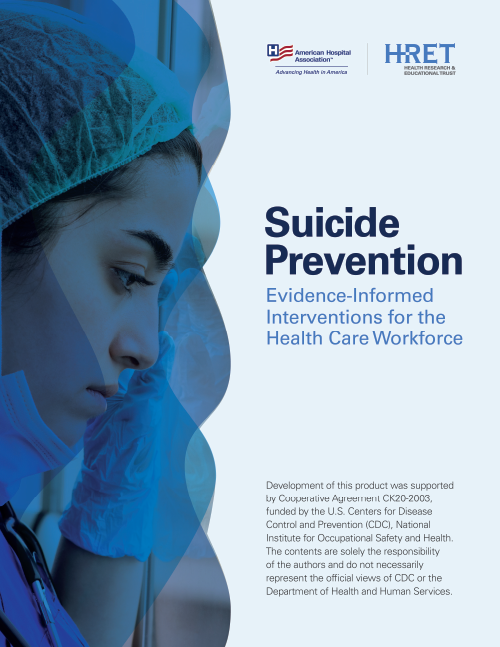
Butler Hospital, part of the Care New England health system, was founded in 1844 and has since been Rhode Island’s only free-standing psychiatric hospital. For their work with the AHA Suicide in the Health Care Workforce Collaborative, Bulter chose to address job-related stressors.
Butler Hospital is an inpatient psychiatric hospital and initially struggled to identify an employee training program suitable for this setting. Because of its setting, many of Butler’s staff already have unique skills in coping with potential conflict and violence. As leaders of the team at Butler attended the collaborative meetings, they began to feel a peer support program would be the most effective intervention for their organization. The team at Butler concluded that they were going to abandon their original ideas and design and implement something new. Leaders at Butler hospital felt their staff were most likely to talk with each other since, due to many barriers, many do not utilize local, outside resources. A major factor impacting this is due to the small size of Rhode Island, with an equally small psychiatric community. Lack of perceived privacy can amplify the stigma associated with accessing behavioral health resources.
After considering many options, the Butler team created a plan. They would start by offering to the extended executive leadership team an educational program, Talk Saves Lives, that has a focus for health care workers. This program will eventually reach all operating units in their hospital as well as corporate leaders. The team at Butler identified that without the collaborative they may not have taken such a top-down approach. Through conversations and presentations within the collaborative Butler realized how important it was for there to be leadership support for these programs.
One of the units of their hospital has had a CISM (Critical Incident Stress Management) team in place for years, which the team found to be well-utilized by staff. A CISM is a peer-driven crisis response team that is designed to help individuals and teams recover more quickly from abnormally stressful job-related incidents and trauma. The second part of their plan is to ensure there are functional CISM teams in all operating units of the hospital. This will require an infusion of resources to provide the training and bulk up the program.
In the coming months and years, Butler Hospital will identify staff members to educate in a modified Question, Persuade, Refer (QPR) training. They are currently working on updating the referral resources associated with this program. Once these are updated, they will work on implementing the training.


